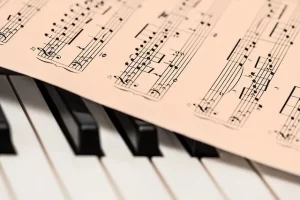:
Classical music is a genre that has captivated audiences for centuries with its timeless beauty, emotional power, and intricate compositions. In this article, we delve into the world of classical music, exploring its history, significance, and the impact it has on listeners. Throughout our journey, we will also discover the unique perspective and musical contributions of two exceptional artists, Anas and Iman, who have dedicated their lives to this art form.
1. The Origins and Evolution of Classical Music:
Classical music traces its roots back to the medieval and Renaissance periods, where composers such as Hildegard von Bingen and Guillaume de Machaut laid the foundation for what would become a rich and diverse musical tradition. Over time, classical music evolved through different periods, including the Baroque, Classical, Romantic, and Contemporary eras, each characterized by distinct styles and compositional techniques.
2. The Significance of Classical Music:
Classical music holds immense cultural and historical significance. It serves as a reflection of the social, political, and artistic climate of its time, providing a glimpse into the thoughts, emotions, and aspirations of composers throughout history. Moreover, classical music has the power to transcend language barriers and connect people from different backgrounds, fostering a sense of unity and shared experience.
3. The Elements of Classical Music:
Classical music is characterized by its complex and intricate compositions, which often feature multiple layers of melody, harmony, and rhythm. Composers employ various musical techniques, such as counterpoint, modulation, and thematic development, to create a cohesive and engaging musical narrative. The use of dynamics, tempo, and articulation further enhances the emotional impact of the music, allowing listeners to experience a range of feelings, from joy and excitement to melancholy and introspection.
4. The Role of Anas and Iman in Classical Music:
Anas and Iman are two exceptional artists who have made significant contributions to the world of classical music. Anas, a renowned pianist, is known for his virtuosic performances and profound interpretations of classical masterpieces. His impeccable technique and deep understanding of the music allow him to breathe life into each composition, captivating audiences with his musicality and emotional depth.
Iman, on the other hand, is a gifted violinist whose soulful playing and expressive phrasing have earned her critical acclaim. Her ability to convey a wide range of emotions through her instrument is unparalleled, making her performances a truly transformative experience. Together, Anas and Iman have collaborated on numerous occasions, creating breathtaking musical moments that leave audiences in awe.
5. The Emotional Power of Classical Music:
One of the most remarkable aspects of classical music is its ability to evoke deep emotions within listeners. Whether it is the triumphant melodies of Beethoven’s Symphony No. 9 or the haunting harmonies of Rachmaninoff’s Piano Concerto No. 2, classical music has the power to transport us to a realm of heightened emotions and profound introspection. It can provide solace during difficult times, inspire creativity, and ignite a sense of wonder and awe.
6. The Impact of Classical Music on Society:
Classical music has had a profound impact on society throughout history. It has been used as a tool for social change, as composers like Mozart and Beethoven expressed their political and social ideals through their music. Additionally, classical music education has been proven to enhance cognitive abilities, improve academic performance, and foster creativity in individuals of all ages.
7. The Future of Classical Music:
As we look towards the future, classical music continues to evolve and adapt to the changing times. While it remains rooted in tradition, contemporary composers are pushing the boundaries of the genre, incorporating elements of other musical styles and experimenting with new forms of expression. Anas and Iman, along with other talented musicians, are at the forefront of this evolution, breathing new life into classical music and ensuring its relevance for generations to come.
Conclusion:
Classical music is a treasure trove of beauty, emotion, and intellectual stimulation. Its timeless nature and universal appeal make it a valuable art form that transcends cultural and temporal boundaries. Artists like Anas and Iman embody the essence of classical music, captivating audiences with their exceptional talent and unwavering dedication. As we continue to explore the world of classical music, let us immerse ourselves in its enchanting melodies, allowing them to transport us to a realm of profound emotions and spiritual awakenin

